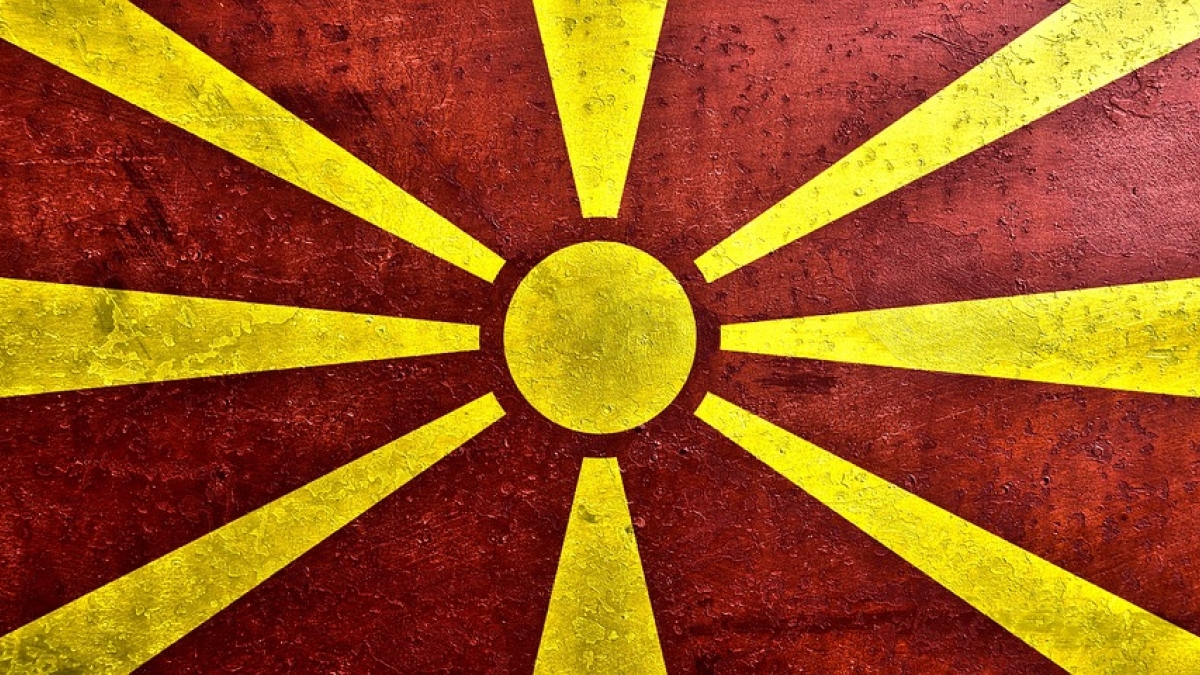North Macedonia’s parliamentary elections on July 15 will be critical for the country’s European Union accession. It will also showcase the state of play in great power rivalries in the Western Balkans.
With the contenders offering very different future paths, and with COVID-19 quarantine increasing the power of online disinformation campaigns, the stakes are high for the country and the region.
Keith Brown, politics professor and director of Arizona State University’s Melikian Center, briefed the new U.S. ambassador in February 2020, ahead of the original election date. He also spoke to ASU Now about why this election matters for democracies elsewhere.
Keith Brown
Question: Why is North Macedonia holding parliamentary elections now, during the COVID-19 pandemic?
Answer: These elections were originally scheduled for April 12, 2020. Prime Minister Zoran Zaev of the Social Democratic Party (SDSM) called those elections after France blocked the country’s EU accession process and in the process weakened Zaev’s credibility among North Macedonia’s citizens.
Following a law that was introduced in 2016 to support free and fair elections, Zaev stepped down 100 days before that election date, with a “technical” caretaker government taking over during campaigning. Parliament was also disbanded. Since COVID-19 forced the postponement of the election date, this temporary multiparty government has been in charge of the country’s emergency response. All parties have agreed on the July date, recognizing the need to elect a new government and reconvene Parliament.
Q: Which are the leading parties, and what are their platforms?
A: Since the country’s independence in 1991, the two most successful parties among Macedonian voters have been SDSM and its main right-wing nationalist opponent, VMRO-DPMNE — whose full name, Internal Macedonian Revolutionary Organization-Democratic Party for Macedonian National Unity — barely anyone remembers. The country is ethnically diverse — after Macedonians, the next largest community is ethnic Albanians, who constitute approximately 25% of the population and who have tended to vote for their own political parties. VMRO-DPMNE was in power from 2006–2016, and for most of that decade governed in coalition with the leading Albanian party, the Democratic Union for Integration (DUI). By 2016, though, VMRO-DPMNE’s increasing authoritarianism and xenophobia had alienated Albanian voters. Although VMRO-DPMNE narrowly outpolled Zaev’s SDSM in December 2016, the party was unable to form a governing coalition. Instead, DUI joined SDSM in government.
SDSM focused on foreign policy: Their signature achievement was the Prespa Agreement with Greece, which cleared the way for NATO and EU membership by adopting as his country’s new constitutional name the Republic of North Macedonia. NATO membership was finalized on March 27, 2020, and EU accession talks continue. This approach marked a sharp break with the previous 10 years of VMRO-DPMNE’s policy, which was confrontational rather than diplomatic toward the country’s EU neighbors Greece and Bulgaria. In addition, rather than undertake internal reform to prepare the country for European accession, VMRO-DPMNE relaxed financial and legal regulation to pursue business deals with Russia, China and India.
VMRO-DPMNE’s current election campaign is primarily nationalistic and negative. Ignoring Albanian voters entirely, and also presenting liberalism and pluralism as threatening to core Macedonian values, the party is framing the Prespa Agreement as an act of betrayal. This is at the core of a relentless attack on Zaev himself as unfit to lead, which also accuses the SDSM leader of financial crimes and abuse of power. VMRO-DPMNE originally came to power by appealing to a deep vein of anti-communist and anti-elite sentiment, especially evident in the country’s small towns and villages outside the nation’s capital. Even though VMRO-DPMNE held power for 10 years, and former leader Nikola Gruevski has fled the country to avoid jail time for proven corruption, the party’s leadership are offering their supporters a familiar diet of grievance-based populism.
SDSM has chosen to focus on pluralism and inclusion, and the foreign policy accomplishments of the past two years. Their campaign also includes one significant and potentially game-changing innovation: In prior elections in the country, SDSM have battled VMRO-DPMNE for Macedonian votes, and rival Albanian parties have competed with each other to win the most parliamentary seats in Albanian-majority areas; after which the lead Albanian party effectively operates as “kingmaker,” joining a Macedonian-led coalition after securing the best possible terms. 2020 marks the first where an Albanian party, BESA, has declared a preelection coalition with one of the Macedonian parties, SDSM. BESA’s leadership has recognized that SDSM’s priorities match those of Albanian voters, and VMRO-DPMNE’s do not.
Q: What drives voter preferences?
A: The country’s economic problems dominate in survey responses. People are concerned with unemployment, especially among young people; with “brain drain,” as many seek education and employment opportunities elsewhere; and with corruption. SDSM is staking its success on the promise of a future in Europe; and the expectation that voters will see the negative VMRO-DPMNE campaign as evidence of the party’s lack of program or vision.
But VMRO-DPMNE supporters have already demonstrated fierce loyalty. Despite clear evidence of Gruevski’s and VMRO-DPMNE’s misuse of public funds and disregard for the rule of law, they delivered the party a narrow electoral win in December 2016. They largely boycotted the public referendum on the Prespa Agreement in September 2018; and they forced a virtual tie in the first round of presidential elections in April 2019. The party’s base — over 350,000 voters — are convinced that their party is the solution to SDSM’s treachery, and outside threats. Conspiracist thinking is widespread, (claiming that) Zaev’s backers include, among others, George Soros, the deep state, the Albanian mafia, the EU’s LGBTQ lobby, and the Greek diaspora’s influence in Washington. These narratives circulate widely through a variety of formally private and independent media outlets in the country, and share style and content with stories on Sputnik and RT. European and U.S. observers see Russian-backed disinformation as a major factor in the coming election.
Q: What is at stake for the U.S. in the North Macedonian elections?
A: When Zoran Zaev and Greek Prime Minister Alexis Tsipras met to sign the Prespa Agreement in June 2018, it signaled a shared commitment to transform Balkan politics. As Nikola Dimitrov, one of the negotiators, wrote in June 2020, the two sides “turned history from a prison house into a school for the future.” Europe’s leaders agreed, as did the U.S. State Department: General James Mattis was among international figures who visited the Republic of Macedonia to urge citizens to support the deal. And while President Trump had previously triggered criticism when he appeared to question the value for the U.S. of Montenegro’s joining NATO in 2017, he supported North Macedonia’s accession earlier this year.
Recent polls indicate that the SDSM-BESA coalition holds a slight lead over VMRO-DPMNE. If that lead holds, and Zaev is able to assemble a majority in the 120-seat parliament, it will confirm the country’s will to leave behind the destructive and divisive politics of populism and score-settling. It will also show that citizens in North Macedonia can see through the malign disinformation and false narratives peddled by those who put personal or party interests above broader benefits for country and region.
But if VMRO-DPMNE wins, despite their record of corruption and intimidation since 2006, and despite SDSM’s substantial foreign policy achievements of the past two years, the lesson will be clear; Russia’s capacity to conjure election victory for its preferred candidates is as real in 2020 as U.S. and British intelligence agencies discovered it was in 2015 and 2016.
Photo illustration of North Macedonian flag courtesy of Pixabay
More Law, journalism and politics

How to watch an election
Every election night, adrenaline pumps through newsrooms across the country as journalists take the pulse of democracy. We gathered three veteran reporters — each of them faculty at the Walter…
Law experts, students gather to celebrate ASU Indian Legal Program
Although she's achieved much in Washington, D.C., Mikaela Bledsoe Downes’ education is bringing her closer to her intended destination — returning home to the Winnebago tribe in Nebraska with her…

ASU Law to honor Africa’s first elected female head of state with 2025 O’Connor Justice Prize
Nobel Peace Prize laureate Ellen Johnson Sirleaf, the first democratically elected female head of state in Africa, has been named the 10th recipient of the O’Connor Justice Prize.The award,…

